11 have author last names that start with L have author last names that start with L
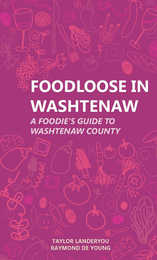
Inspired by a classic walking guidebook of the area, Foodloose in Washtenaw County takes readers on tours to discover food-related treasures throughout the county. What better way to get to know this place—or experience something new—than to bike, bus, carpool, walk, even kayak your way through food-filled Washtenaw County?
From centennial farms to trendy upscale restaurants, the self-guided tours of Foodloose offer an opportunity to explore where our food is grown, produced, distributed, and enjoyed in Washtenaw County. Within these pages lies a chance to celebrate the local food community, learn more about our unique food system, and maybe even find a new favorite place to dine.
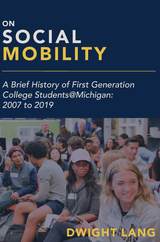
Lang describes how working and lower class students openly acknowledge and struggle with challenging experiences on a predominantly middle and upper middle class campus. We appreciate how first generation students are risk takers, boundary crosser, and successful social class immigrants. Resourceful first-gen efforts become the basis of connection and community as students begin their social mobility journeys. Overtime a public story emerges: stories making the invisible visible; stories of courage and persistence; stories of structural changes; a thoughtful student movement that is hard to ignore. We come to better understand the power of shared determination.
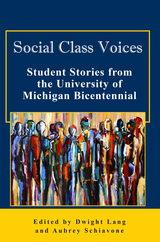
These writers explore social class heritages at a time when more and more Americans are recognizing economic inequality as a core structural problem facing millions, independent of individual effort and talent. They shed light on what is too often denied both on and off college campuses: social class. By their very nature these types of explorations are political.
In America, where economic differences frequently go unnoticed when discussing inequality, openly writing about one’s personal class experiences can be controversial. These University of Michigan students and alumni have the courage to make public how social class structures American life.
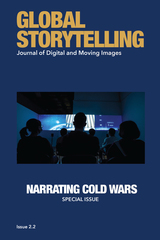
Special Issue Editors: Kenneth Paul Tan & Dorothy Lau
Letter from the Editor - YING ZHU
Cold War and New Cold War Narratives: Special Issue Editor’s Introduction - KENNETH PAUL TAN
Research Articles
Notes on Cold War Historiography - LOUIS MENAND
Tales from the Hot Cold War - MARTHA BAYLES
Bomb Archive: The Marshall Islands as Cold War Film Set - ILONA JURKONYTĖ
Das unsichtbare Visier—A 1970s Cold War Intelligence TV Series as a Fantasy of International and Intranational Empowerment; or, How East Germany Saved the World and West Germans Too - TARIK CYRIL AMAR
To Whom Have We Been Talking? Naeem Mohaiemen’s Fabulation of a People-to-Come - NOIT BANAI
The Man without a Country: British Imperial Nostalgia in Ferry to Hong Kong (1959) - KENNY K. K. NG
Imagining Cooperation: Cold War Aesthetics for a Hot Planet - MARINA KANETI
Book Reviews
Through Space and Time - Review of The Odyssey of Communism: Visual Narratives, Memory and Culture edited by Michaela Praisler and Oana-Celia Gheorghiu, Cambridge Scholars Publishing, 2021 - ISABEL GALWEY
Review of Hollywood in China: Behind the Scenes of the World’s Largest Movie Market by Ying Zhu, New Press, 2022 - YONGLI LI
The Cautionary Tale of Painting War Remembrance in China as a New Nationalism - Review of China’s Good War: How World War II Is Shaping a New Nationalism by Rana Mitter, Belknap Press, 2020 - FUWEI ZUO
Tracking American Political Currents - Review of White Identity Politics by Ashley Jardina, Cambridge University Press, 2019, and Fox Populism: Branding Conservatism as Working Class by Reece Peck, Cambridge University Press, 2019 - DAVID GURNEY

How can I tell if something is in the public domain? This is the central question addressed daily by the Copyright Review Management System (CRMS) project. It is a special question and one essential to the social bargain that society has struck with authors and rights holders.
It is also a deceptively simple question. There should be a straightforward answer, especially for books. It should be easy to know when something is—or is not—subject to copyright. And yet, in an age of absolute fluidity of media and medium, even plain old books can be highly complex embodiments of copyright. We need to make it easier to ascertain whether a work is in the public domain. If the rights of copyright holders are to be respected and valued as part of the social bargain, the public domain as a matter of copyright law should be ascertainable and enjoyed
.
Given this complexity, consider the determination of the copyright status of a given creative work as a design problem. How do we move the copyright status of works in the collections of our libraries, museums, and archives from confusion and uncertainty to clarity and opportunity? Working over a span of nearly eight years, the University of Michigan Library received three grants from the Institute of Museum and Library Services (IMLS) to generously fund CRMS, a cooperative effort by partner research libraries to identify books in the public domain in HathiTrust. The Toolkit is a resource that aims to allow others to understand and replicate the work done by CRMS.
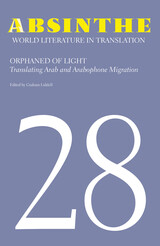
Absinthe 28: Orphaned of Light features contemporary literature of migration translated from and to Arabic. In short stories, creative nonfiction essays, poetry, and selections from novels, a multiplicity of migration experiences is brought to the fore: life in diaspora, undocumented labor, refugeehood, human trafficking, internal displacement, exile.
This issue brings together names familiar to readers of Arabic literature in translation, such as Ghassan Kanafani and Saadi Youssef, with writers making their English-language debuts, such as Dearborn, MI-based Kurdish Iraqi poet Gulala Nouri and Libyan novelist Mohamad Alasfar. Likewise, the issue includes veteran translators Marilyn Booth, Nancy Roberts, and Khaled Mattawa alongside newcomers, several of them graduate students at the University of Michigan.
Each piece is accompanied by a translator’s reflection that meditates on the work’s themes as well as the creative process of translation, and the issue’s poetry is presented in a side-by-side Arabic-English format.
Absinthe 28 comes to us at a time when, according to the UN, one in every 78 people on earth is displaced. This collection serves as a reminder that translation and migration are inextricably linked.
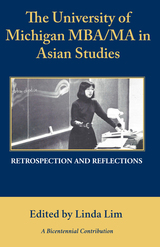
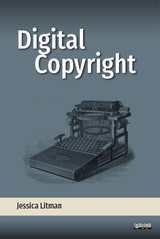
Jessica Litman questions whether copyright laws crafted by lawyers and their lobbyists really make sense for the vast majority of us. Should every interaction between ordinary consumers and copyright-protected works be restricted by law? Is it practical to enforce such laws, or expect consumers to obey them? What are the effects of such laws on the exchange of information in a free society? Litman’s critique exposes the 1998 copyright law as an incoherent patchwork. She argues for reforms that reflect the way people actually behave in their daily digital interactions.
The Maize Books edition includes both an afterword written in 2006 exploring the rise of peer-to-peer file sharing and a new Postscript reflecting on the consequences of the Digital Millennium Copyright Act as it nears its twentieth birthday.
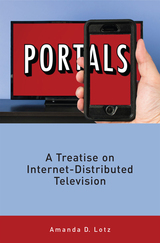
Portals: A Treatise on Internet-Distributed Television pushes understandings of the business of television to keep pace with the considerable technological change of the last decade. It explains why shows such as Orange is the New Black or Transparent are indeed television despite coming to screens over internet connection and in exchange for a monthly fee. It explores how internet-distributed television is able to do new things – particularly, allow different people to watch different shows chosen from a library of possibilities. This technological ability allows new audience behaviors and new norms in making television.
Portals are the “channels” of internet-distributed television, and Portals identifies how the task of curating a library of shows differs from channels’ task of building a schedule. It explores the business model—subscriber funding—that supports many portals, and identifies the key differences from advertiser or direct purchase. Portals considers what we know about the future of television, even though we remain early in a process of transformative change.

The objective was to create a book that uses the topic of urban gardening to teach young readers about the importance of environmental stewardship— respecting and caring for Earth and the diversity of life it sustains.
Through art and science, we can better understand complex environmental issues like access to food and water, loss of biodiversity, and land-use. Any reader, of any age, can make a difference in their community through forming stronger connections with people and the earth.
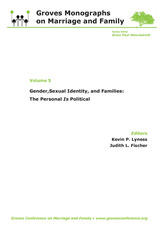
READERS
Browse our collection.
PUBLISHERS
See BiblioVault's publisher services.
STUDENT SERVICES
Files for college accessibility offices.
UChicago Accessibility Resources
home | accessibility | search | about | contact us
BiblioVault ® 2001 - 2024
The University of Chicago Press









